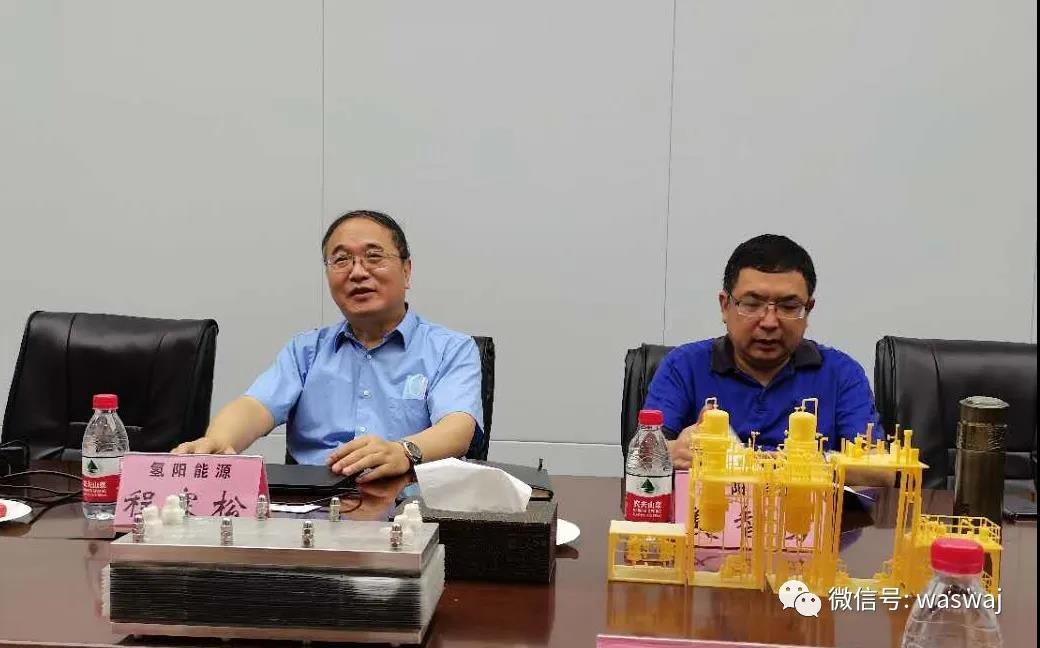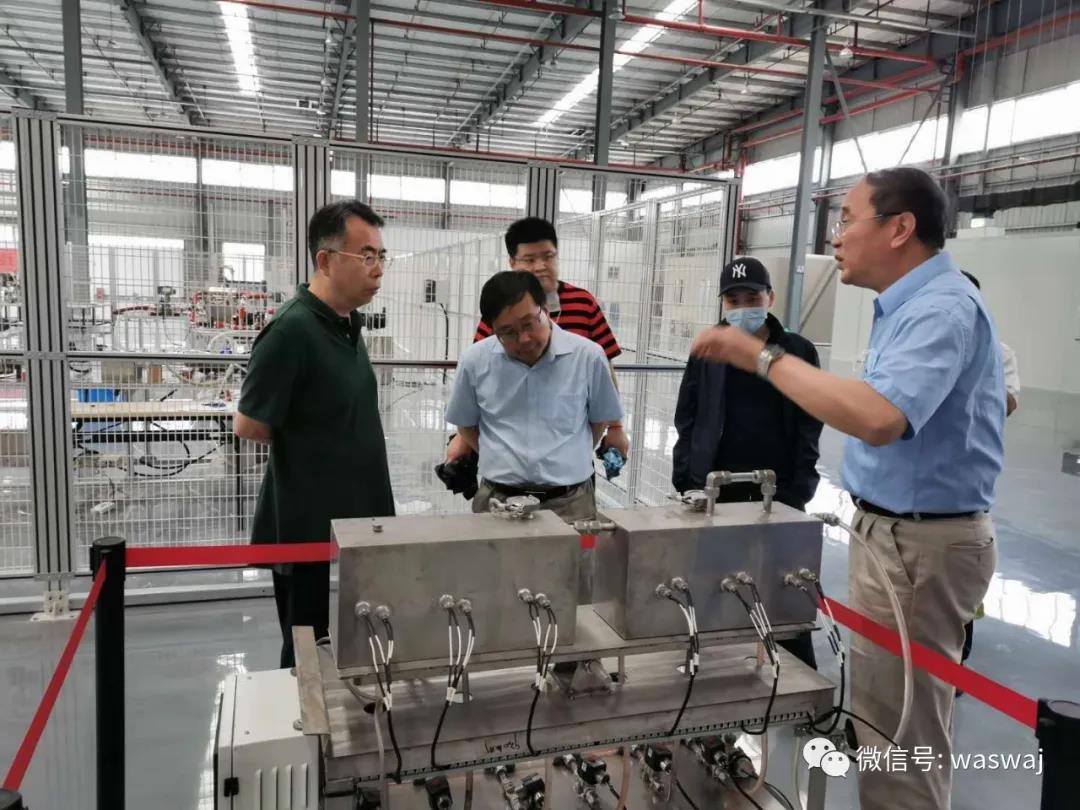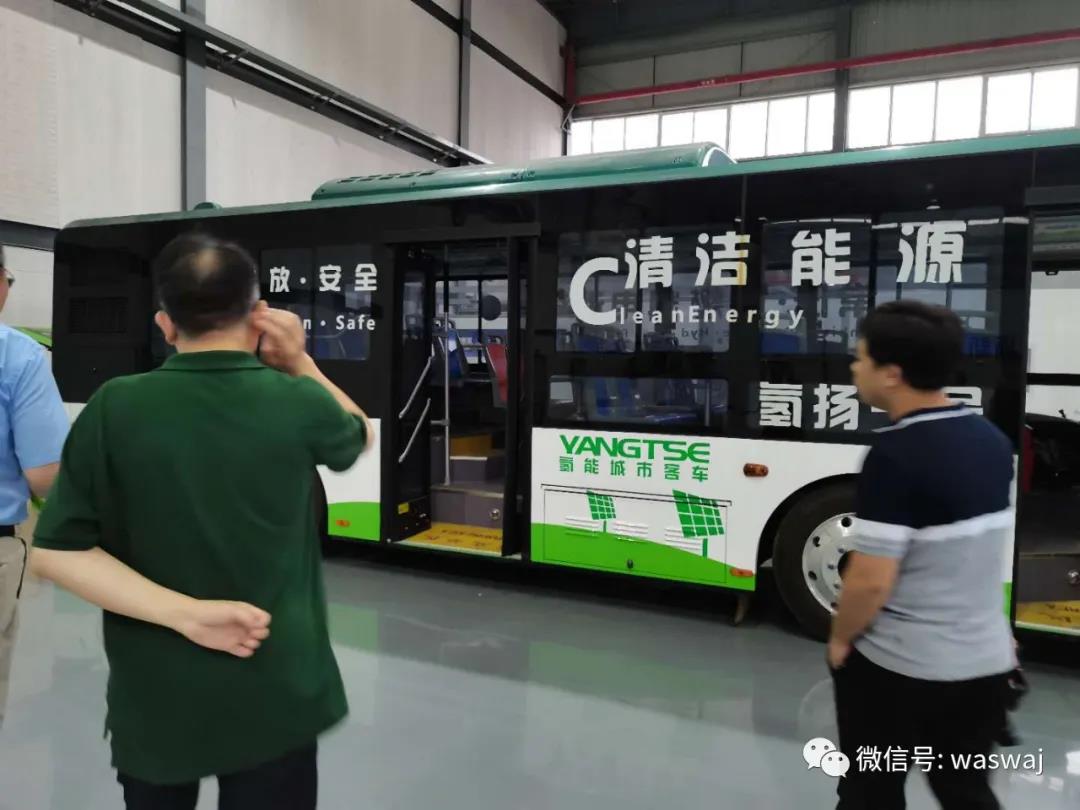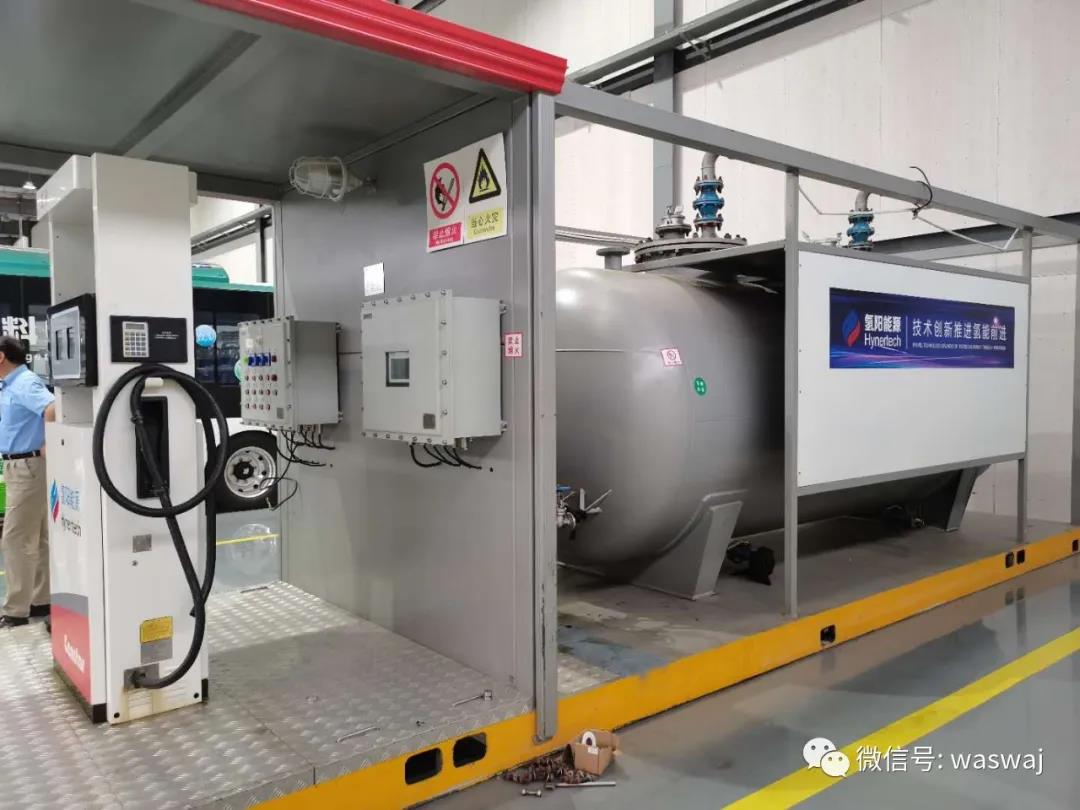Time:2020-07-10 Reading:12339
Hydrogen has been hailed as the "ultimate energy
source" and is internationally recognized as a clean energy source, but it
has not yet been applied on a large scale. The fundamental reason for this is
that hydrogen has a very stubborn characteristic: it is flammable, explosive,
and difficult to store and transport at room temperature and pressure. The
former U.S. Secretary of Energy, Steven Chu, summarized it as one of the four
major problems in the use of hydrogen energy. Therefore, breaking through the
bottleneck of hydrogen application has become a dream goal for the scientific
community. The team of Prof. Dr. Hansong Cheng, Distinguished Professor of
China University of Geosciences (CUG), has successfully overcome the
technological bottleneck of large-scale application of hydrogen energy, and
developed the technology of organic liquid hydrogen storage under normal
temperature and pressure.
Prof. Dr. Hansong Cheng studied under China's famous
chemist Tang Aoqing, and later received his PhD from Princeton University in
the US, majoring in theoretical chemistry. He has worked for the US Department
of Energy and AP.

Prof. Dr. Hansong Cheng (first from left) introduces hydrogen oil research and development to Tian Li, President of Qidi Handan Research Institute (in preparation) and his delegation.
At present, the development of the domestic hydrogen energy industry is still facing four problems, which are the four major challenges mentioned by Steven Chu: firstly, the need to have abundant sources of hydrogen, secondly, the storage and transport of hydrogen at room temperature and high pressure, thirdly, cheap, efficient and long-life fuel cells, and fourthly, the need for adequate infrastructure. Therefore, how to solve the four major problems raised by Steven Chu and better develop and utilise hydrogen energy has become the most pressing issue at present.
On 7th July, the editor of Wuanjun followed
Tian Li, Senior Vice President of Qidi (Holdings) and President of Qidi Handan
Industrial Technology Research Institute (in preparation), to visit Wuhan. The
editor of Wuanjun had a close interview with Prof. Dr. Hansong Cheng,
Director of Sustainable Energy Laboratory of China University of Geosciences
(Wuhan). Professor Hansong Cheng answered the reporter's questions on the
development status of organic liquid hydrogen storage technology, technological
progress, the future market prospects of hydrogen energy and fuel cells and
other industry hot issues.

First from left: Tian Li, President of Qidi Handan
Industrial Technology Research Institute
Reporter: What is the situation in China regarding the
four major challenges of hydrogen energy application mentioned by Steven Chu?
Professor Hansong Cheng said, at present, from the
domestic development situation, a large number of industrial by-production of
hydrogen and abandoned wind, light and water discarded electricity, as well as
the emergence of reasonably priced, long-life fuel cells, has solved the two
major challenges in the development of the hydrogen economy, the next need to
deal with is the level of hydrogen storage and transport and infrastructure
construction. The infrastructure development has benefited from the new
infrastructure carried out after the COVID-19 epidemic, so it is not a big
problem in China. The only problem is the way of storage and transport of
hydrogen energy, the maturity of the technology or not, the technical issues
determine the scale of investment in the new infrastructure and the timing of
construction, so breakthroughs in the use of hydrogen energy key technologies,
research and development of normal temperature and pressure conditions, safe,
efficient and cheap liquid hydrogen storage technology is of great practical
significance.
Reporter: At present, the domestic hydrogen energy use
in full swing, the title of the hydrogen valley of the name of the development
zone is common, a variety of technical routes are endless. However, in terms of
hydrogen storage and transport, the main way is still high-pressure hydrogen
storage, pressure use, etc., the safety issue has become the primary problem.

Hynertech’s Hydrogen buses have been put into operation
Professor Cheng said that in order to realize the marketable and large-scale application of hydrogen storage technology, it is necessary to take the lead in solving the problem of hydrogen refueling stations. If we adopt our liquid organic hydrogen storage technology from Hynertech, then there will be no such problem in many aspects such as hydrogen storage, hydrogen transport, refueling and use, and it will be very safe.
Compared to high-pressure gaseous hydrogen storage,
low-temperature liquefaction hydrogen storage technology and other chemical
hydrogen storage technologies, organic liquid hydrogen storage technology has
the following very important characteristics:
Firstly, organic liquid hydrogen storage technology
has a higher volumetric hydrogen storage density than high-pressure hydrogen,
containing only 39 grams of hydrogen per litre at 700 atmospheres. China is
currently using 350 atmospheres, containing 20 grams of hydrogen per 1 litre.
Deep cold liquefaction to -253 ℃,
each 1 litre contains 70 grams of hydrogen. Our organic liquid hydrogen storage
technology can achieve nearly 60 grams of hydrogen per litre at room
temperature and pressure, so its hydrogen storage capacity is very high.
Secondly, organic liquid hydrogen storage can match
well with existing petrol stations and other infrastructures, only a small
amount of modification to the existing petrol station can be quickly
transformed into a hydrogen refueling station, and the cost of equipment to
build a hydrogen refueling station is only more than 200,000 RMB. Compared to other
hydrogen refueling stations that can cost tens of millions of dollars to build,
Hynertech's hydrogen refueling stations are very economical, and large
petroleum refineries can be magnificently transformed into hydrogen oil
manufacturing plants. Since hydrogen oil hydrogen from a wide range of sources,
such as coal and other rich organic matter can be obtained, oil storage and can
be used repeatedly, therefore, the large-scale promotion of hydrogen oil
hydrogen storage technology to protect China's energy security is also of great
significance.

Hydrogen oil refueling stations and hydrogen oil
storage tanks
Thirdly, organic liquid hydrogen storage technology
has low energy consumption on the user side, and the transport is very safe and
convenient, which can effectively reduce the cost of use on the user side.
Reporter: Professor Cheng, on the user side, how is hydrogen
released from hydrogen oil? Can the storage oil be recycled?
Prof. Dr. Hansong Cheng: At the user end, such as in
automobiles, hydrogen is released from stored oil at a temperature of 200°C and with a specialized catalyst. So where does such a
temperature come from? Because the fuel cell waste heat quality is so low, only
70 degrees, it is difficult to turn 70 degrees into 200 degrees. Therefore, it
is necessary to do two things: one is to increase the fuel cell operating
temperature, so that hydrogen can be released by using waste heat; there is
another way, that is, to let the hydrogen oil react directly on the membrane
electrode of the fuel cell, interrupting the carbon-hydrogen bond, and the
hydrogen goes directly into the fuel cell, and the product is the storage oil
and electricity, and this is the final solution.
Reporter: What is the progress of related technology
research and development abroad?
Prof. Dr. Hansong Cheng: The way of storing hydrogen
in organic liquids is related to the choice of hydrogen storage carrier and
catalyst. In Japan, for example, in the early days, the Japanese government
took the lead, with eight ministries working together, and many well-known
companies, such as Nippon Iwatani and Toyota, were actively involved. They also
hoped to adopt liquid organic hydrogen storage to store and transport hydrogen.
However, the carrier chosen by Japan is toluene, which is highly toxic and
volatile. Hydrogen can be easily added to it, while it is very difficult to
remove it. Germany's organic liquid hydrogen storage technology also
encountered similar problems in Japan. Of course, both Europe and Japan are
continuously exploring and developing. In this regard, we can proudly say that Hynertech's
liquid hydrogen storage technology is already at the forefront of the times.
Reporter: What advantages does Hynertech have in
organic liquid hydrogen storage technology and what are the prospects for
development?
Prof. Dr. Hansong Cheng: Hynertech's organic liquid
hydrogen storage technology is the most advanced in the world. In China, Hynertech
is the only high-tech company engaged in the research and development of
organic liquid hydrogen storage technology.
Germany has also been developing organic hydrogen
storage technology in recent years, and was nominated for the Presidential
Prize for Science and Innovation in 2018. However, the
German technology requires a dehydrogenation
temperature of more than 300 Celsius degrees, a slower dehydrogenation speed,
and a platinum catalyst. Hynertech's dehydrogenation temperature is only 200
Celsius degrees, and its speed is 20-30 times faster than theirs. In terms of
dehydrogenation equipment, the advantages are also obvious.
Reporter: What are the advantages of Hynertech's
hydrogen oil technology compared to methanol hydrogen storage methanol fuel
cell technology?
Prof. Dr. Hansong Cheng: Methanol is also a good and
important medium for hydrogen storage, widely available and cheap. However,
methanol hydrogen storage is irreversible, burned and gone, and methanol fuel
cells have CO2 emissions. In addition, gas separation and purification after
methanol decomposition is also a headache. Hynertech is a reversible hydrogen
storage technology. That is to say, the carrier used in hydrogen solar energy
is not consumed, stored in and released, it can be reused, and can be used
repeatedly.
Reporter: What progress has been made in the
development of national standards for liquid hydrogen storage technology, and
what difficulties have been encountered in its promotion?
Prof. Dr. Hansong Cheng: At present, the international
standard for high-pressure hydrogen has been released, but the standard for
organic liquid hydrogen storage has not yet been formulated. Our industry
alliance has done some group standards, and is now working with China
Automotive Research Institute, the National Institute of Standards, the South
Network and other units to do the organic liquid hydrogen storage standards,
has released several enterprise standards and group standards. The development
of organic liquid hydrogen storage standards is conducive to the application
and promotion of organic liquid hydrogen storage technology.
At present, the organic liquid hydrogen storage
technology to carry out large-scale promotion and application of the technology
has not been any problem, the biggest obstacle may still be insufficient
awareness of it. Because at present the mainstream technology at home and abroad
still adopts the high-pressure hydrogen storage, Toyota is also high-pressure
hydrogen storage. Thus, some people think that it is impossible for the Chinese
to surpass foreign technologies. In fact, although in general, China's
scientific research conditions and scientific and technological strength is not
as good as that of foreign countries, but a single technology to surpass is
completely possible.
Reporter: Could Professor Cheng please introduce the
research and development of fuel cell proton membrane in Hynertech?
Prof. Dr. Hansong Cheng: The low-cost proton exchange
membrane suitable for medium to high temperatures (150-200C) has been completed
for pilot testing, and the next stage will be catalyst coating.
Reporter: Professor Cheng, would you please talk about
Hydrogen Sun's product development in the field of hydrogen oil derivatives?
The company's research and development of hydrogen
oil-powered heat, power and cooling triple-supply technology has basically
matured and has the conditions for large-scale promotion.
On the issue of hydrogen source, Hynertech, together
with China Fifth Ring Engineering Company, has also developed high-temperature
rubbish gasification to hydrogen oil technology to deal with municipal rubbish
and industrial solid wastes, and has built an experimental plant in Wuhan, the
future promotion of which will likely be the end of organic solid wastes and
become an important source of hydrogen. Various technologies developed by Hynertech
have been granted or are in the process of applying for nearly 100 invention
patents and utility model patents by the State Intellectual Property Office
(SIPO) and related countries.
Article
reprinted from WeChat public number "Wuanjun".